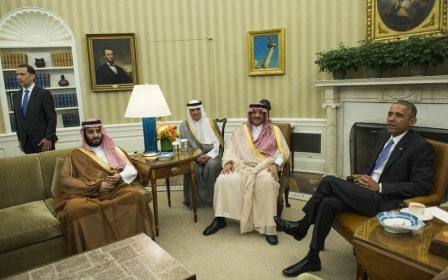Saudi abandons Islamic calendar as part of cost-cutting measures

Saudi government workers will be paid according to the Gregorian calendar instead of the Islamic Hijri calendar, making the working month longer as part of cost-cutting measures, newspapers reported on Monday.
The change, approved by cabinet last week, brings civil service pay in line with the government's January-December fiscal year, the Arab News and Saudi Gazette reported.
The reports said the latest austerity measure took effect on 1 October.
Saudi Arabia, the world's biggest oil exporter, is cutting government spending and re-orienting its economy after a collapse over the past two years of the global oil price which provided most of its revenue.
The Hijri calender consists of 12 months of 29 or 30 days depending on the sighting of the moon, meaning the Islamic year is several days shorter than the Gregorian calendar, which is widely used in the world.
Last week, cabinet also cut by 20 percent the salaries of ministers and froze the wages of lower-ranked civil servants.
Almost twice as many Saudis are employed in the large public sector - where hours are shorter and leave longer - than in private firms.
In April, the king's son, Deputy Crown Prince Mohammed bin Salman, announced the wide-ranging Vision 2030 plan to diversify the economy.
Among its goals, Vision 2030 aims to boost private sector employment, cutting the government payroll to 40 percent of the budget from 45 percent by 2020.
This article is available in French on Middle East Eye French edition.
Middle East Eye propose une couverture et une analyse indépendantes et incomparables du Moyen-Orient, de l’Afrique du Nord et d’autres régions du monde. Pour en savoir plus sur la reprise de ce contenu et les frais qui s’appliquent, veuillez remplir ce formulaire [en anglais]. Pour en savoir plus sur MEE, cliquez ici [en anglais].




